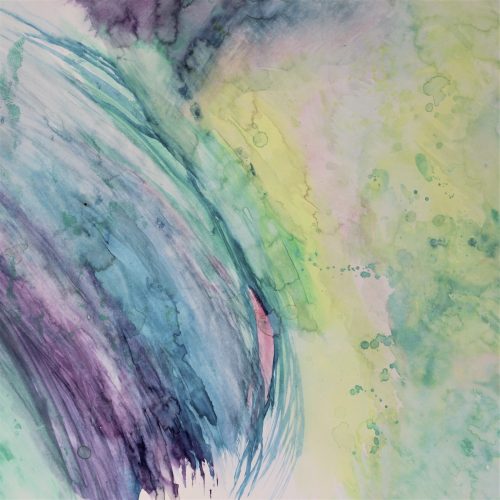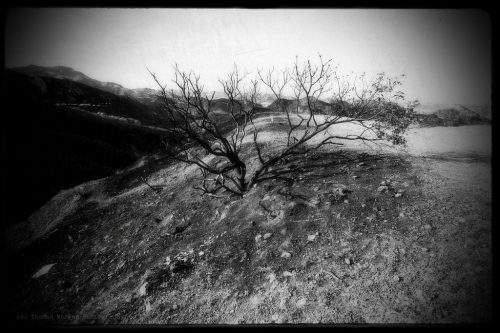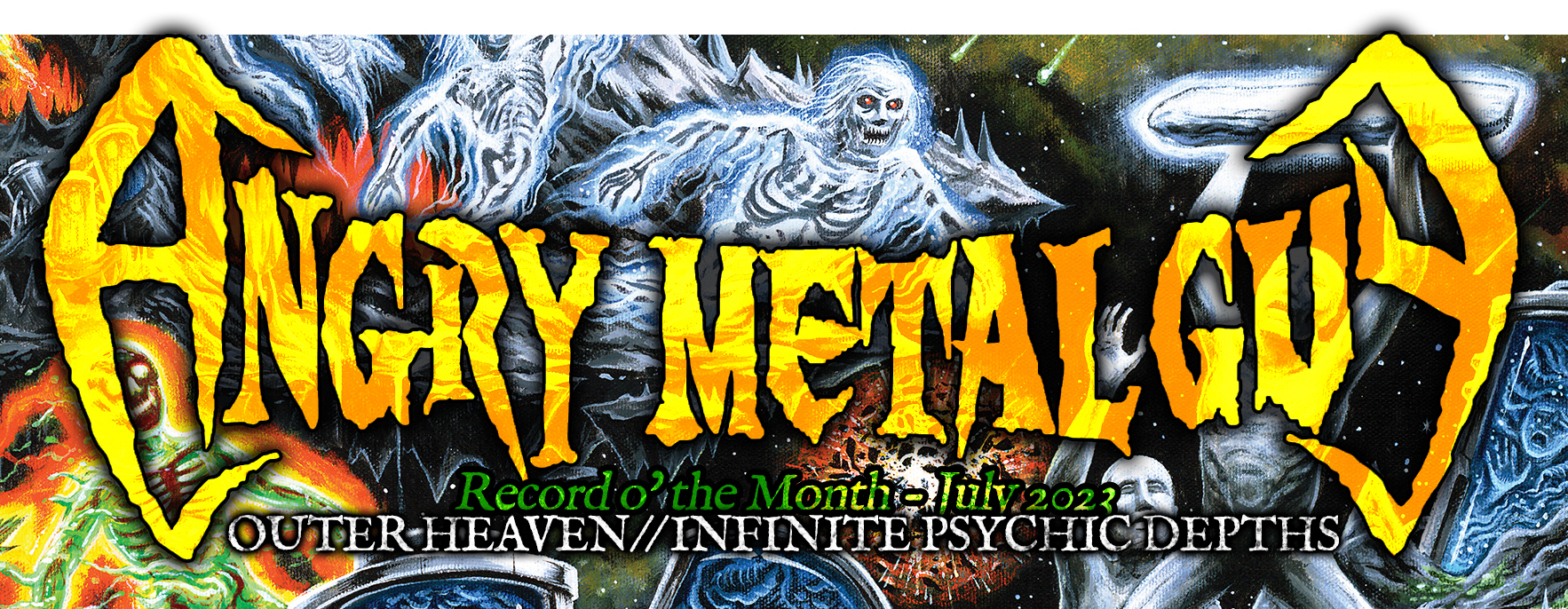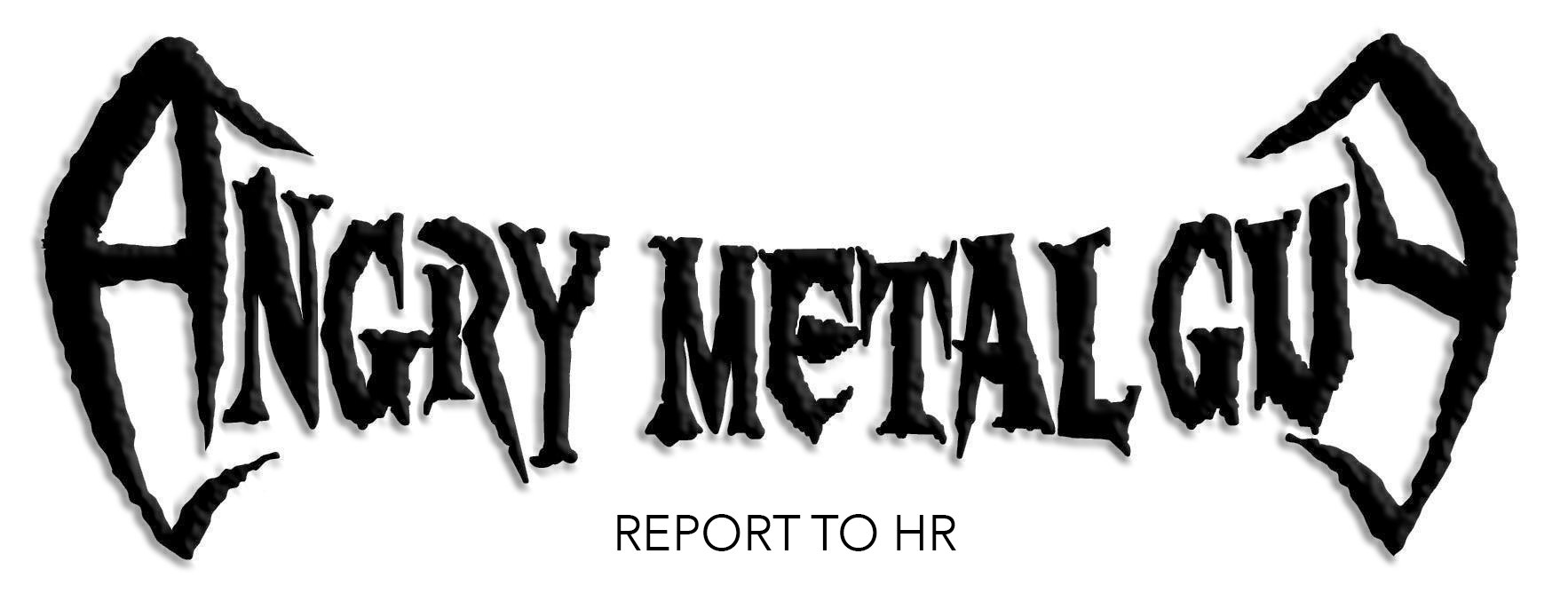 It always happens; you forge a plan, you lay out your strategies as to how you’ll get things done, and just when you’re about to do those things, life happens. In this case, a heavily-increased work schedule kept me occupied. Like, for months. No lie, we here at Angry Metal Guy planned on doing pieces on mental health awareness back in June, and this very interview was conducted back in October/November, months after initial contact with the ever-patient Kameron Bogges, sole creator of An Isolated Mind. The fact that this interview is seeing light in December should tell you that things haven’t exactly slowed down much.
It always happens; you forge a plan, you lay out your strategies as to how you’ll get things done, and just when you’re about to do those things, life happens. In this case, a heavily-increased work schedule kept me occupied. Like, for months. No lie, we here at Angry Metal Guy planned on doing pieces on mental health awareness back in June, and this very interview was conducted back in October/November, months after initial contact with the ever-patient Kameron Bogges, sole creator of An Isolated Mind. The fact that this interview is seeing light in December should tell you that things haven’t exactly slowed down much.
Thankfully, as I stated, Kameron’s a patient man, and was happy to talk about AIM’s creation, the difficulties in crafting the impressive I’m Losing Myself, and what he did to cope with not only his mental health issues, but also the revisiting of said issues and feelings to craft such a powerful, honest, and raw album. It’s a difficult yet rewarding listen, and not only is it a highlight of 2019 metal releases, but an important one to spread awareness about mental health.
Hello, Kameron, and thank you for not only agreeing to do the interview, but also for being patient with me over the last few weeks in terms of scheduling the interview. Also, thank you for I’m Losing Myself, which is not only one of the (sadly) few albums in the metal genre to put a non-exploitative spin on mental health issues, but also is among my… I’m hesitant to say “favorite” albums, due to the raw, sensitive nature of what went into its creation, but it’s easily one of, if not THE, most honest I’ve heard in quite some time that has struck a major chord with me, as someone who’s battled depression and anxiety over the years.
My first question is I know you’ve put out music under the Four Hoove Death Pig moniker in the past. What made you decide to release I’m Losing Myself under the guise of An Isolated Mind?
I think releasing ILM under the Four Hoove Death Pig name would have been pretty jarring. An Isolated Mind was a way to set a clean slate and serious mood; a move towards sincerity and away from the nihilistic irony of banana bread-themed metal operas.1
Yeah, I’d definitely say that talking about going through a severe mental health episode would be worlds away from banana bread. One thing that blew me away, and was something you touched upon in our brief chats, was that you handled such a sensitive topic with the highest level of respect, and without any of the histrionics or “look at me, I’m fucked up” shenanigans that normally come with almost anybody making an album about mental health. What was going through your mind while constructing I’m Losing Myself?

I didn’t go into the album with the idea of making a social commentary on mental health or anything, I was just trying to tell a story that I couldn’t put into words. The mental illness parts are difficult to talk about because it hardly makes sense to use certain terms anymore. I was admitted to two hospitals and diagnosed a lot of things by a lot of people who had no idea what their diagnosis meant. I, too, understood the concepts of psychosis or mania before I experienced them, and then they meant nothing. From my point of view I was meeting my demons, truth, doubt, relativity, isolation, identity, meaning, God, vivid unreality –in all their purest forms. Though traumatic at the time, it was like a disabling fit of growth that would otherwise be stunted by pathology. What was going through my mind for the album was how to express a seeming paradox without reducing the experience to either “An Isolated Mind: I’m Fucking Crazy” or “An Isolated Mind: I’m Fucking Woke”. That meant being as vulnerable as possible without letting my ego edit out the uncomfortable parts.
Those last two sentences are why I hesitate to call this album a “favorite,” like it’s just another form of entertainment. I love it, don’t get me wrong, because it’s a raw and uncomfortable, but honest and sometimes peaceful account of one’s battles with mental health issues. And that’s one thing that I found lacking in extreme music about mental health (or extreme music in general) is that yes, there are good moments interspersed, too. It’s frustrating to see that tidbit missing in the equation. Your thoughts?
There’s a lot of subtleties that get lost trying to please the genre. Expressing the struggle with honesty means challenging how nuanced and open metal can be, otherwise we’re just iterating the same clichés, perpetuating the same stereotypes. Entire genres like DSBM, in their quest to sound as DSBM as possible, lose subtlety to their own purity –the formula is set, it has its audience, and it is another form of entertainment that tends to be about as nuanced toward mental health as a horror movie. Where is the humanity? Where is the depth? I don’t say this to be elitist, I say it because I want to be able to relate to another human through art without having to peel through layers of metal tropes. If no one is willing to take chances and be vulnerable, then we will continue to feel alone with the emotions that metal chooses to repress.
What is your opinion, made prevalent by those who don’t listen to sad and/or extreme music, that it only makes people more sad/depressed?
It’s undeniable that music effects our mood, e.g. if you’re in a good mood dark music may or may not change that. But of course when we’re depressed happy music can feel oppressive while dark music becomes almost comforting. We can relate to it, feel less alone as I mentioned earlier, and that’s such an important step towards getting better.
The need for nuance reemerges when our music becomes toxic and begins to reinforce the downward spiral instead of acknowledging it truthfully and leaving us inspired. That’s on us as listeners as well, to discriminate when we’re using music as therapy and music as a justification for our misery. We tend to worship the nihilistic aesthetic of Nietzsche while ignoring his every effort to help us overcome this undeniable condition. Moreover, The Buddha teaches us the omnipotence of our suffering -a bleak truth to surround yourself with- but by seeing that truth we can begin to find our way out.
Now, inversive to what I just asked… do you think that it’s healthy for bands to continuously drink from the same well when it comes to writing this type of music? In other words, while it’s okay for bands to worship and follow the same groups and styles over and over (hell, we all do this), do you think that, by not branching out somewhat, it all becomes a bit of a homogeneous blur stylistically?

Yeah, that’s a good way to put it. Metal is weird because we can all agree with that notion to some degree: we want the genre to innovate and do new things…but not *too* much. With DM/BM especially, there’s an irony to how controversial it can be to branch out and cross genres (thinking back to something like the release of (Deafheaven’s Sunbather), or for an established project to change up their sound or lineup even slightly. In terms of mental health, I think it’s generally more healthy to be open minded than not in terms of genre/ideology/culture etc, since new perspectives can be healing in themselves when the old ones fail us.
Of course anxiety and depression on their own can make change difficult to deal with, so I empathize with the need to hold on to what is familiar and comforting in our lives (and sometimes that means secretly hoping for the growls to come back on the next Opeth record).
Speaking of healing, it’s harrowing enough to experience a severe mental break in any form, let alone try to write about it in the context of an album after the fact. If you don’t mind me asking, how were you able to cope with both what happened initially, as well as finishing up the writing of the album? What got you through them?
There was about 8 months from hospitalization to the beginning of the recording process, so I had a lot of time to reflect on the experience before going into the album. After the episode was a brief period of medicated lethargy before I decided to go off medication and recover on my own terms. Understanding and accepting myself meant everything after that point, so I did an extensive study of psychology and Eastern/Western philosophy and began meditating, journaling, exercising, etc. ILM was a continuation of this intense drive toward health (along with two albums that I chose not to release), though 8 months of recovery was necessary before I could even handle such an ambitious and emotionally painful project. It was still by no means easy, but it was crucial that I get it out of me.
And how have you been feeling since I’m Losing Myself’s release? Has the distance in time between now and then helped in any way?
There’s an interesting tension between the joy of having my work appreciated, and the pressure in knowing that it isn’t just for me anymore. Writing a cathartic piece of music is one thing, releasing it down the digital conveyor belt of praise and blame is another. Nestled behind the drama of my mental break is an unrelenting social anxiety that’s come to the forefront with the album’s success, and that’s not another struggle I can manage by simply withdrawing into myself.
Yeah, I can only imagine the level of stress you’re going through, Kameron. I remember when Devin Townsend kept feeling pressured, putting out Strapping Young Lad albums that had to outdo the prior ones in terms of rage and insanity. While that creates some amazing, cathartic memories, it does some serious damage mentally. Sinéad O’Connor is another artist that springs to the forefront in terms of trying to balance honest art within the boundaries of your own mental health. Sometimes, you have to ask yourself if this is even worth it in the end.

I ask myself that all the time, and my instincts usually tell me to quit music and change my name the moment someone wants to simply have an interview with me. But that’s anxiety talking, and there’s every reason to challenge what it says. Every time I sit down to make music is a struggle to release myself from my own traps/boundaries/anxieties/insecurities, and I simply won’t find motivation to keep going unless I’ve cultivated some kind of freedom from myself. I think it’s rather natural, maybe in young Devin Townsend’s case, to find what works for your audience and then do that again despite your own needs, but that will never work for me. In the end I will only make something that is personally worth it even if I had to throw it directly into the garbage afterward. So now there’s real social pressures on top of the neurotic internal ones, but we’ve already established that I’m not here to sell you madness. Whatever happens next will be necessary or it won’t happen at all.
I don’t blame you for making that decision, and I highly respect that you made that call. Final question: if there was something you could say to either those who’ve never experienced what you’ve been through, or those who are going through what you’ve been through (including a younger version of yourself), what would you say for clarity or advice?
In the end there may be no one in this world who can help you; no one who will understand in the ways you need them to. Go your own way, find your own solace, and do your best to give what you could never receive.


















